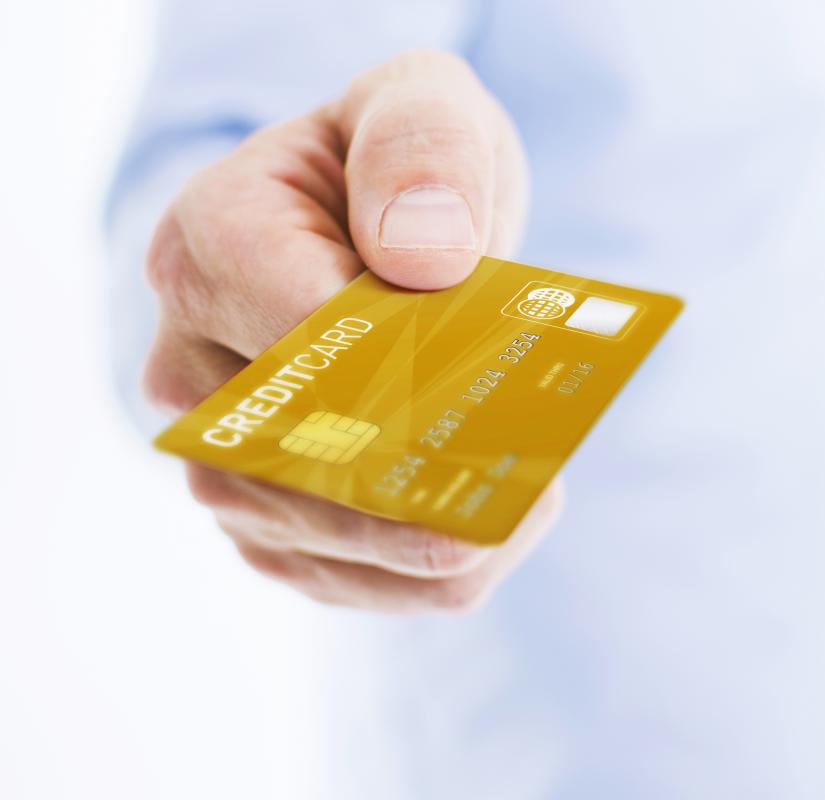At WiseGEEK, we're committed to delivering accurate, trustworthy information. Our expert-authored content is rigorously fact-checked and sourced from credible authorities. Discover how we uphold the highest standards in providing you with reliable knowledge.
What is an Unsecured Creditor?
An unsecured creditor is a creditor who lent money to a debtor without receiving any collateral for the loan. Collateral refers to a tangible piece of property with value that guarantees the loan. Typically, unsecured creditors have a difficult time recovering the money lent in the event that a borrower declares bankruptcy or defaults and doesn't pay his debt, since the claim of an unsecured creditor is lower in value than the claim of a creditor who lent money for secured debt.
The broad division between secured and unsecured debt can be explained by understanding what collateral is. Collateral is a tangible item that can be sold to recover the unpaid balance of a loan. A mortgage loan and a car loan, for example, are secured debt, since the home and the car respectively act as collateral for the money lent.

Generally, secured debt has a lower interest rate than unsecured debt, since secured debt is less risky for the lender. The lender may also require certain forms of protection in case the value of the collateral drops, to ensure that the full value of the loan is guaranteed by the item. For example, if a person puts less than 20 percent down on a home and thus has no equity, the lender may require the homeowner to pay private mortgage insurance in case of default. Likewise, a lender who lends money for a car may require the borrower to buy gap insurance that will pay the lender should something happen to the car and the insurance value reimbursed doesn't completely cover the loan.

An unsecured creditor, on the other hand, has nothing to guarantee the money he lent since there is nothing to sell. The most common example of unsecured debt that people are familiar with is credit cards. A borrower can charge $1,000 US Dollars (USD) of pizza and soda on his credit card, for example.
If the borrower does not pay the lender, the unsecured creditor cannot repossess and sell the pizza and soda that has been eaten. As a result, the unsecured creditor has only the borrower's word that he will pay and little recourse if he does not, other than a lawsuit. Even a lawsuit may not provide the creditor with much protection if the plaintiff is judgment-proof, which means he has no assets to pay even if he loses the court case, or if the person declares bankruptcy, since unsecured debts are generally low on the list of people paid in the event of a bankruptcy declaration.
AS FEATURED ON:
AS FEATURED ON:












Discussion Comments
@Markerrag -- it is a supreme irony that unsecured creditors still don't get much under a Chapter 13 plan.
By the way, there are at least two types of unsecured debts -- priority and non priority. Priority secured debts must be paid 100 percent and absolutely cannot get discharged in bankruptcy in most cases. Those debts include federally backed student loans, taxes, court fines and debts incurred through fraud.
Keep in mind that it was the unsecured creditors who lobbied so hard a few years ago for the bankruptcy reform act for one, simple reason. Under a Chapter 7 consumer bankruptcy case, unsecured debt could we wiped out completely. In a Chapter 13 case, however, unsecured creditors will typically at least get a few cents on the dollar.
It is a heck of a lot harder to file a Chapter 7 case these days as those are reserved for debtors who don't have the income to support paying off consolidated debt through a Chapter 13 payment plan that usually lasts 5 years. There is no payment in a Chapter 7 case -- debtors reaffirm debts they want to keep (cars and houses, for example) and discharge unsecured debts (usually credit cards and medical bills).
Post your comments